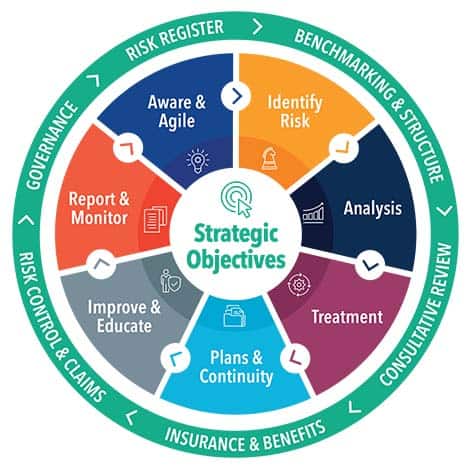Most recently in June 2023, the International Sustainability Standards Board (ISSB) issued IFRS S1 General Requirements for Disclosure of Sustainability-related Financial Information and IFRS S2 Climate-related Disclosures. Consideration of the ISSB’s Standards may help companies better identify matters, including climate change, that affect the financial statements and help companies apply IFRS or FRS Accounting Standards.
Most industries likely to be, affected by climate change and efforts to manage its impact. Climate change is a topic in which investors, lenders and other stakeholders are increasingly interested because of its potential effect on companies’ business models, cash flows, financial position and financial performance. Essentially vital that companies must consider climate-related matters in applying IFRS or FRS Accounting Standards when the effect of those matters is material in the context of the financial statements taken as a whole. Information is material if omitting, misstating or obscuring it could reasonably be expected to influence decisions that primary users of financial statements make on the basis of those financial statements.
Despite that there is no single explicit standard on climate-related matters under IFRS or FRS Accounting Standards, companies are required, at a minimum, to follow the specific disclosure requirements in each IFRS or FRS Accounting Standards. We set out below some practical illustrations where the application of the requirements of FRS may be affected by climate-related matters.
FRS 1 PRESENTATION OF FINANCIAL STATEMENTS
FRS 1 outlines the overall requirements for financial statements, including how they should be structured, presented and disclosed. Climate-related matters can have an impact on the financial statements and information disclosed in them.
Financial statements assumptions and judgements made that have significant risk of resulting in a material adjustment to the carrying amounts of assets and liabilities in the next 12 months are required to be disclosed, specifically the information about those assumptions, nature and extent.
It is also important for entities to ensure consistency in both the disclosures on climate-related matters outside the financial statements (i.e., in sustainability reports) and how they incorporate climate risk in the financial information (i.e., for measurements and disclosures in the financial statements).
Climate-related matters may affect companies abilities to continue as a going concern in various ways. In assessing whether the going concern basis of preparation is appropriate, management takes into account all available information about the future, which is at least, but is not limited to, 12 months from the end of the reporting period. If climate-related matters create material uncertainties related to events or conditions that cast significant doubt upon a company’s ability to continue as a going concern, FRS 1 requires disclosure of those uncertainties.
FRS 2 INVENTORIES
FRS 2 outlines the accounting treatment for inventories, which are assets that companies holds for sale in the ordinary course of business or in the process of production for such sale.
Climate-related matters can have an impact on the measurement and disclosure of inventories in the financial statements. For instance, companies may find their costs of production to increase, declining selling prices due to intense market competition and inventory becoming obsolete at an accelerated rate. If, as a result, the cost of inventories is not recoverable, FRS 12 requires write down of these inventories to their net realisable value.
In addition, if the company is involved in activities that causes significant carbon emissions, and if there is a potential increase in carbon taxes or regulations, it may also have an impact on the financial performance of the company, and on the inventory values.
FRS 12 INCOME TAXES
FRS 12 outlines the accounting treatment for income taxes, including recognition and measurement of current and deferred tax liabilities and assets.
FRS 12 generally requires companies to recognise deferred tax assets for deductible temporary differences and unused tax losses and credits, to the extent it is probable that future taxable profit will be available against which those amounts can be utilised.
Climate-related matters can have an impact on the recognition and measurement of income taxes. For instance, companies may face increased income tax liabilities as a result of local regulations or imposed taxes related to carbon emissions.
Additionally, if companies in renewable energy or carbon capture technology industry vertical, these companies may be eligible for tax incentives or credits. This could result in deferred tax assets, which would have to be recognised and measured in accordance with FRS 12.
FRS 16 PROPERTY, PLANT AND EQUIPMENT
FRS 16 outlines out the accounting treatment for property, plant and equipment (“PPE”), which are tangible assets that are held for use in the production or supply of goods or services, for rental to others, or for administrative purposes.
Climate-related matters can have an impact on the measurement and disclosure of PPE in the financial statements and the going concern disclosures.
Climate-related matters may affect the estimated residual value and expected useful lives of assets, for instance, because of obsolescence, legal restrictions or inaccessibility of the assets. Companies are also required to disclose the expected useful lives for each class of asset and the nature and amount of any change in estimated residual values or expected useful lives, which would affect the company’s financial performance and position.
In summary, climate change and growing societal pressures have the potential to significantly affect the value of an item of PPE. Specifically, companies should consider how these factors can affect their PPE in connection with the useful lives, business models, residual values, research and development costs and possible overhauls.
FRS 36 IMPAIRMENT OF ASSETS
FRS 36 outlines the accounting treatment for impairment of assets, which in making assessment whether the carrying amount of an asset exceeds its recoverable amount (which is the higher of its fair value less costs to sell and value in use).
In ever evolving business environments, companies constantly facing market and supply chain challenges and effects of climate change on its operations, which in turn increasing cost of business and declining revenue levels or profit margins. This could result in impairment of assets such as property, plant and equipment, right-of-use assets and intangible assets.
In making such an assessment, companies should consider some common key indications of impairment. Some instances of factors that could lead to impairment of assets which may include:
- Rapid advancement of technology;
- An adverse change to the environment in which the entity operates;
- An increase in market interest rates that will affect the discount rate used in calculating an asset’s value in use; and
- Introduction of emission-reduction legislation that increased manufacturing costs.
FRS 37 PROVISIONS, CONTINGENT LIABILITIES AND CONTINGENT ASSETS
FRS 37 outlines the accounting treatment for provisions, which are liabilities of uncertain timing or amount, and contingent liabilities and assets, which are potential liabilities and assets that depend on the occurrence or non-occurrence of one or more uncertain future events.
Climate-related matters may affect the recognition, measurement and disclosure of liabilities in the financial statements applying IAS 37, for example, related to:
- levies imposed by governments for failure to meet climate-related targets or to discourage or encourage specified activities;
- regulatory requirements to remediate environmental damage;
- contracts that may become onerous (for example, due to potential loss of revenue or increased costs as a result of climate-related changes in legislation); and
- restructurings to redesign products or services to achieve climate-related targets.
As a result, Companies may need to recognised some of these climate-related provisions or contingent liability in accordance with FRS 37, which ultimately affecting the Companies financial results and market positioning.
In conclusion, when applying the financial reporting standards, Companies should consider whether and how climate-related matters may have a material effect on the financial statements, including the adequacy of disclosures. When applying judgements and making estimates relating to climate-related matters in the financial statements, management should ensure that such judgements and estimates reasonable and are supportable.
Additionally, Management should consider the financial impact of the Companies climate-related commitments and plans. Management should ensure consistency between information communicated in the financial statements and information communicated to stakeholders outside the financial statements (e.g. press releases, management commentaries, sustainability reports).










